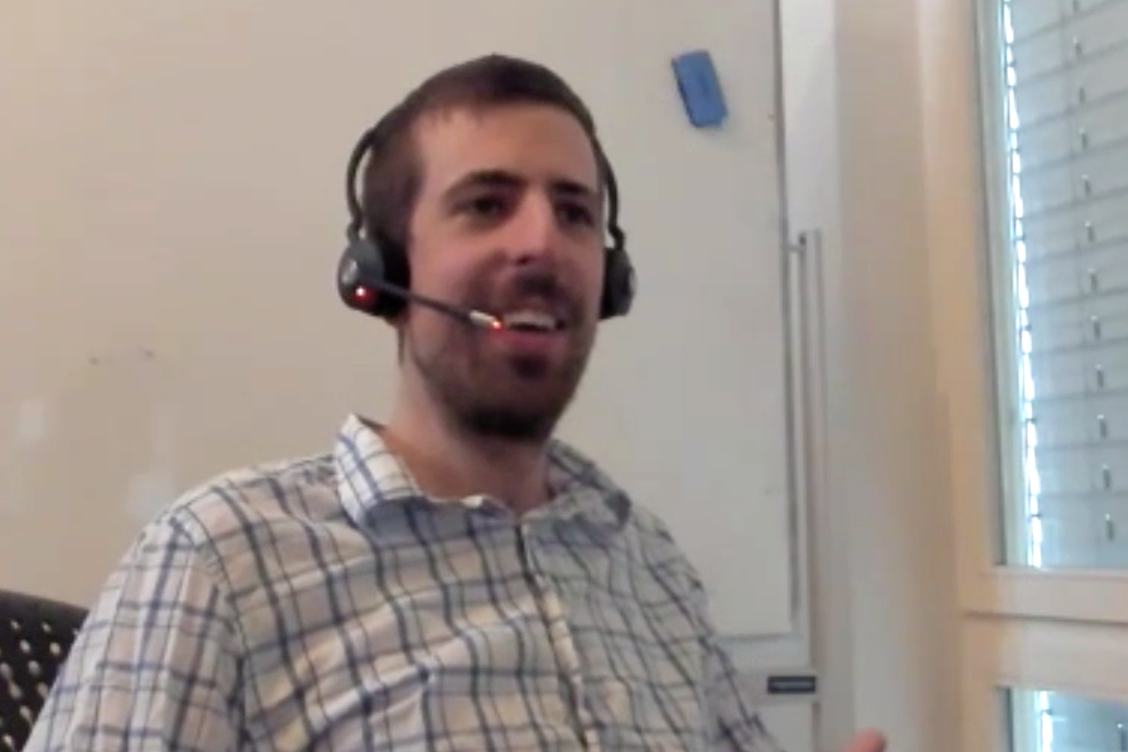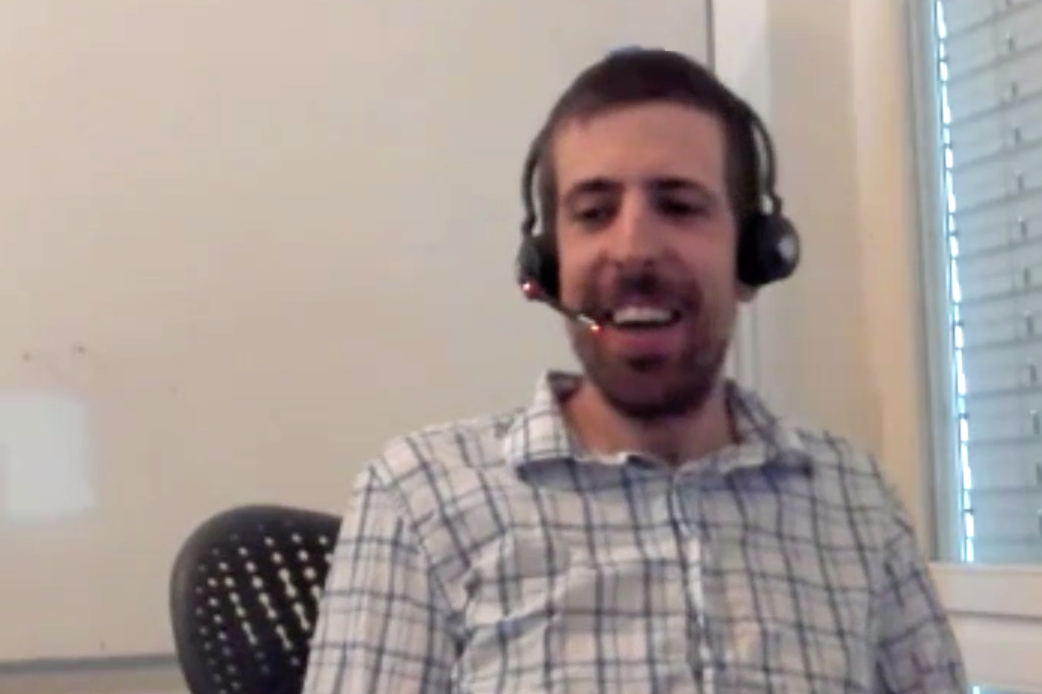"I’m sure this situation will give rise to many new ideas on how events can be organised."
Afonso Bandeira is Professor of Mathematics in the field of data science. He has been at the Department since September 2019. This Spring Semester he has taught the Mathematics of Data Science lecture, which is a course for Master’s degree students. Like many scientists, he works closely with colleagues from all over the world. In this interview, he tells us how the coronavirus pandemic has affected his teaching and research life.
What was your first thought when you heard that due to the coronavirus pandemic the ETH Executive Board had decided to close all ETH buildings as of 16 March and had asked everyone to work from home?
I remember being quite shocked. But when I think about what had happened in the weeks before, I somehow expected something was coming. Therefore, after my last lesson on Thursday 12 March, I decided to record my lessons. So I put a camera in my office, stayed behind late and recorded as many lectures as I could. And then the very same evening – when I was on my way home – I saw the message from the Executive Board announcing that ETH was to close!
How was your teaching affected by the change to distance learning?
After the first recordings, I started to teach via Zoom using my whiteboard at home. First, I asked the students what they liked, and it turned out that most of them liked it when I was teaching directly at the board. This is close to normal teaching in the sense that I am able to point to things on the board and students can observe my body language more easily.
In normal classes I try to involve the students as much as possible by asking them questions to help lead onto the next step. Sometimes, even their expressions alone function as answers. But in video meetings, it is very difficult to read the audience. If I end up doing distance learning again – now that both the students and I are more used to it – I will try to have a system in which students are encouraged to participate more. The goal would be to lessen, as much as possible, the increased lack of interaction inherent to video sessions.
How did your research life change during this time?
I started to do weekly group meetings with students to make sure I saw everyone each week. Now that we don’t have as many chance encounters – in the corridor or at the office, for example – I think it is important to meet with people on a regular basis. Also, remote interaction with collaborators has become very common. But I must admit that remote meetings are much more tiring, especially when two or more people are sitting together trying to discuss a mathematical problem.
Are there any new projects you are involved in?
I started to organise the remote Math and Data Plus seminar to try to maintain a sense of community in my area of research. This is a joint seminar together with my colleagues from New York University (NYU). I have also set up a YouTube channel where we publish the recordings of this seminar. I am hoping that this will continue after the world goes back to normal. We are going to try to convert it to a multi-location seminar where, for example, we would have a speaker at ETH giving a talk in front of an audience with a camera and a screen. This screen would be showing a room at NYU where there would also be an audience, and there would be the opportunity to ask the speaker at ETH questions. This kind of approach would enable us to create a digital link between the two audiences.
There is another seminar I am involved in which goes even further: the One World: Mathematics of INformation, Data, and Signals (MINDS) seminar. This seminar is a bit different to the other one I’ve mentioned. It is intended to be more global and therefore has organisers from many locations. These new kinds of seminar are now springing up in large numbers in different fields and I think some will live on after the crisis. While they certainly do not replace traditional seminars, they do complement them in some way.
What are the most important things you have learnt over the last few weeks?
Overall, I’ve certainly been surprised with how well things have turned out. I think people have reacted quite well.
With regard to seminars and conferences, I’m sure this unprecedented situation will give rise to many new ideas on how events like these can be organised. I also think that many conferences which would normally be face-to-face events will start to include some form of infrastructure for remote audiences. This would be a huge opportunity to be more accommodating to people in more isolated places and to those whose personal circumstances or health conditions prevent them from attending in person.

